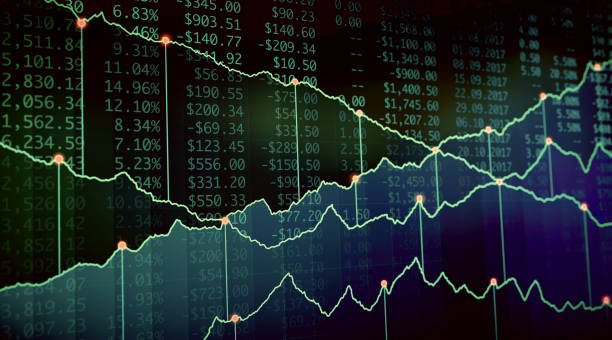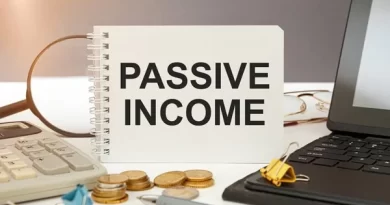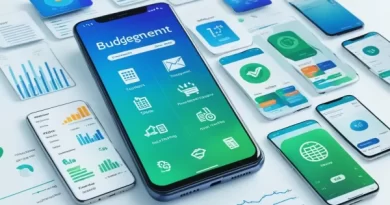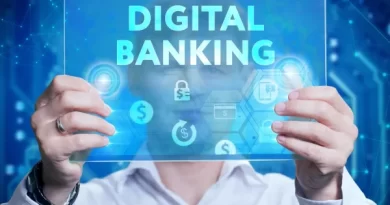Economic Forecasting: Navigating the Future with Precision and Insight
Economic forecasting is often portrayed as a sophisticated form of crystal ball gazing—an endeavor that combines rigorous data analysis with strategic foresight to navigate future economic landscapes. This multifaceted discipline not only illuminates potential economic trends but also serves as a compass for businesses, investors, and policymakers seeking to steer through the complexities of economic uncertainty. Let’s embark on a detailed exploration of economic forecasting, uncover its core components, and understand its profound significance in shaping our financial future.
The Art and Science Behind Economic Forecasting:
Economic forecasting is an intricate process that blends the empirical rigor of data analysis with the nuanced understanding of economic theories. At its core, it involves predicting future economic conditions by analyzing current and historical data, such as Gross Domestic Product (GDP), unemployment rates, inflation indices, and consumer spending patterns. The goal is to provide a forward-looking perspective that helps stakeholders make informed decisions in a dynamic economic environment.
Essential Elements of Economic Forecasting:
- Data Collection and Analysis:
The foundation of any reliable forecast is high-quality data. Forecasters gather extensive datasets from various sources, including historical economic metrics and real-time indicators. This comprehensive data collection ensures that forecasts are grounded in reality and can account for both historical trends and current economic conditions. - Economic Models and Techniques:
Forecasters employ a variety of models to interpret data and project future trends. Econometric models use statistical methods to analyze economic relationships and forecast future outcomes, while structural models explore the underlying economic frameworks and institutions that drive economic activity. These models provide a structured approach to understanding complex economic interactions and predicting their future trajectories. - Scenario Planning and Simulation:
Given the inherent uncertainty of the future, scenario planning becomes a critical component of forecasting. By creating and analyzing different “what-if” scenarios, forecasters can explore a range of potential outcomes based on varying assumptions. This approach helps in assessing the potential impacts of different economic conditions and preparing for a variety of possible future states. - Expert Judgment and Interpretation:
While data and models are essential, the expertise of seasoned economists adds a crucial layer of interpretation. Experienced forecasters use their insights and judgment to interpret data, adjust models, and incorporate qualitative factors that may not be captured by quantitative methods. This blend of quantitative analysis and qualitative insight enhances the accuracy and relevance of forecasts.
The Impact of Economic Forecasting:
- Strategic Business Planning:
For businesses, economic forecasts are invaluable tools for strategic decision-making. By understanding potential economic shifts, companies can make informed choices about expansion, investment, and resource allocation. Forecasts help businesses navigate economic uncertainties, capitalize on emerging opportunities, and mitigate potential risks. - Policy Development and Implementation:
Governments and policymakers rely on economic forecasts to design and implement effective policies. Whether it’s setting interest rates, crafting fiscal policies, or planning public infrastructure projects, forecasts provide essential insights that guide policy decisions and shape economic outcomes. - Investment Decision-Making:
Investors use economic forecasts to guide their investment strategies. By understanding potential economic trends and market conditions, investors can make more informed decisions about where to allocate their capital. Accurate forecasts help in identifying lucrative investment opportunities and managing financial risks. - Personal Financial Planning:
On an individual level, economic forecasts can influence personal financial decisions, such as purchasing a home, planning for retirement, or managing debt. Awareness of economic trends and forecasts enables individuals to make more informed choices and better prepare for future financial needs.

Overcoming Challenges in Economic Forecasting:
Despite its potential, economic forecasting faces several challenges:
- Data Quality and Availability:
The accuracy of forecasts hinges on the quality and availability of data. Incomplete, outdated, or unreliable data can lead to erroneous predictions and misinformed decisions. - Model Limitations and Assumptions:
Economic models are simplifications of complex economic systems and are based on various assumptions. These models may not fully capture all variables or unforeseen events, leading to potential discrepancies between forecasted and actual outcomes. - Bias and Subjectivity:
Forecasters may be influenced by biases or subjective judgments, which can affect the accuracy of predictions. Recognizing and mitigating these biases is essential for producing balanced and reliable forecasts.
The Future of Economic Forecasting:
The field of economic forecasting is rapidly evolving with advancements in technology. Artificial intelligence and machine learning are enhancing forecasting models, making them more sophisticated and capable of analyzing vast amounts of data. Big data analytics and real-time data collection are also revolutionizing how forecasts are generated and interpreted, providing more accurate and timely insights.
However, despite technological advancements, the inherent uncertainty of the future means that forecasts will always have limitations. The key to effective forecasting lies in combining innovative techniques with traditional methods, remaining adaptable to changing conditions, and continuously refining approaches based on new data and insights.
Conclusion:
Economic forecasting is a dynamic and essential tool for understanding and navigating future economic conditions. By integrating data analysis, economic modeling, scenario planning, and expert judgment, it provides valuable insights that guide strategic decision-making across various sectors. As technology continues to advance, the field of economic forecasting will become even more sophisticated, offering enhanced precision and adaptability in an ever-evolving economic landscape. Embracing these advancements while recognizing the limitations of forecasts will be crucial in making informed decisions and successfully navigating the future.
FAQs:
1. What is economic forecasting all about?
Economic forecasting is the process of predicting future economic conditions by analyzing current and past data. It involves using various analytical models to estimate how economic indicators like GDP, inflation, and employment rates will change over time, helping businesses, policymakers, and investors plan effectively.
2. How do experts develop economic forecasts?
Experts create economic forecasts by collecting a wide array of data from historical records and current trends. They apply statistical models and analytical methods to this data, often incorporating scenario analyses to explore different possible futures. Expert insights are also crucial for interpreting results and adjusting forecasts based on qualitative factors.
3. What types of models are used in forecasting?
Economic forecasts are produced using a range of models, including econometric models that use statistical techniques to analyze economic relationships, and structural models that examine underlying economic mechanisms. Increasingly, machine learning and AI technologies are also being utilized to enhance forecasting accuracy and handle complex data.
4. Why are economic forecasts significant?
Economic forecasts are vital because they guide decision-making across various sectors. Businesses use them for strategic planning and risk management, policymakers rely on them to shape effective policies, investors use them to make informed decisions, and individuals can use forecasts to better manage their personal finances.
5. What are the main challenges in economic forecasting?
Economic forecasting faces challenges such as the quality and reliability of data, limitations of forecasting models, and the potential for bias in interpretation. Unpredictable events and changes in economic conditions can also impact the accuracy of forecasts, making them inherently uncertain.
6. How reliable are economic forecasts?
Economic forecasts provide valuable insights but are not infallible. The complexity of economic systems and the potential for unexpected events mean that forecasts are based on educated guesses rather than precise predictions. It’s best to use forecasts as a tool for planning rather than a definitive answer.
7. How can businesses effectively use economic forecasts?
Businesses can leverage economic forecasts to make informed decisions about investments, expansion, and resource allocation. By understanding projected economic conditions, companies can better navigate uncertainties and capitalize on emerging opportunities.
8. How do policymakers use economic forecasts?
Policymakers use economic forecasts to shape and implement policies that impact economic stability and growth. Forecasts help in designing fiscal and monetary policies, planning public projects, and anticipating the effects of policy changes on the broader economy.
9. What role does expert judgment play in forecasting?
Expert judgment provides essential context and interpretation that complements data and models. Experienced economists use their expertise to refine forecasts, address nuances that models might overlook, and adjust predictions based on qualitative insights and emerging trends.
10. How is technology transforming economic forecasting?
Advancements in technology, such as artificial intelligence, machine learning, and big data analytics, are transforming economic forecasting by enhancing the accuracy and detail of predictions. These technologies allow for more sophisticated analysis and real-time data processing, making forecasts more dynamic and relevant.
11. Can individuals benefit from understanding economic forecasts?
Absolutely. Individuals can use economic forecasts to make better financial decisions, such as planning for major purchases, investing wisely, and preparing for retirement. Awareness of economic trends helps in managing personal finances more effectively and anticipating future financial needs.
12. What should one keep in mind when interpreting economic forecasts?
When interpreting economic forecasts, it’s important to consider the source and quality of the data, the assumptions underlying the models, and any potential biases. Additionally, forecasts should be viewed as a guide rather than a guarantee, and it’s helpful to consider them within the broader context of economic trends and conditions.




